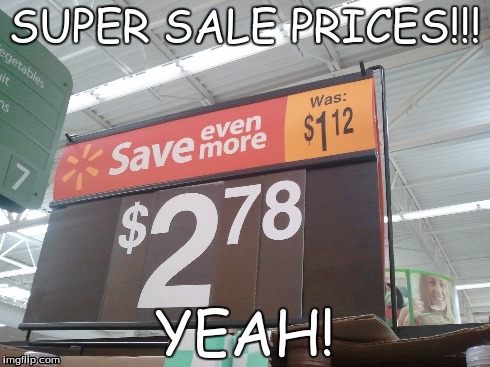I once had a chance to tell our local pub that their Chinese New Year sale sign is incorrect. They decided to put the sign in Chinese but got confused over how the discount is written in Chinese, so they wrote a price of +50% instead of -15%.
but why?
In Chinese the sale price is stated as the remaining part of the original, and it is written in tens of percents (折), so the full price is 10折, and 15% discount is 8.5折, but they had a sign of 15折. Google translate seems to think 15折 = 8.5折 but I would guess that it’s just AI outsmarting itself again. Now, a real person would probably be able to guess what was meant anyway, but it’s nice to write things correctly and not rely on guesswork
The specific rules are implemented in local laws, so it probably varies a bit from country to country, but generally it’s illegal to market something as a special offer unless it actually is cheaper than before. The sign says “save more”, which would be misleading marketing.
There are other ways to work around it though. For instance by alternating between two similar products biweekly, or simply by not having that specific product before Black Friday, making it appear like a special offer even if it’s sold at full price.
EU has a directive about it. Prices must be shown in the proper unit, including all taxes and any “before” price if it’s on “sale”.
Do they happen to make this kind of sales, too?
I once had a chance to tell our local pub that their Chinese New Year sale sign is incorrect. They decided to put the sign in Chinese but got confused over how the discount is written in Chinese, so they wrote a price of +50% instead of -15%.
but why?
In Chinese the sale price is stated as the remaining part of the original, and it is written in tens of percents (折), so the full price is 10折, and 15% discount is 8.5折, but they had a sign of 15折. Google translate seems to think 15折 = 8.5折 but I would guess that it’s just AI outsmarting itself again. Now, a real person would probably be able to guess what was meant anyway, but it’s nice to write things correctly and not rely on guesswork
The specific rules are implemented in local laws, so it probably varies a bit from country to country, but generally it’s illegal to market something as a special offer unless it actually is cheaper than before. The sign says “save more”, which would be misleading marketing.
There are other ways to work around it though. For instance by alternating between two similar products biweekly, or simply by not having that specific product before Black Friday, making it appear like a special offer even if it’s sold at full price.
Thanks for the info, I will now know of more schemes to try to avoid.